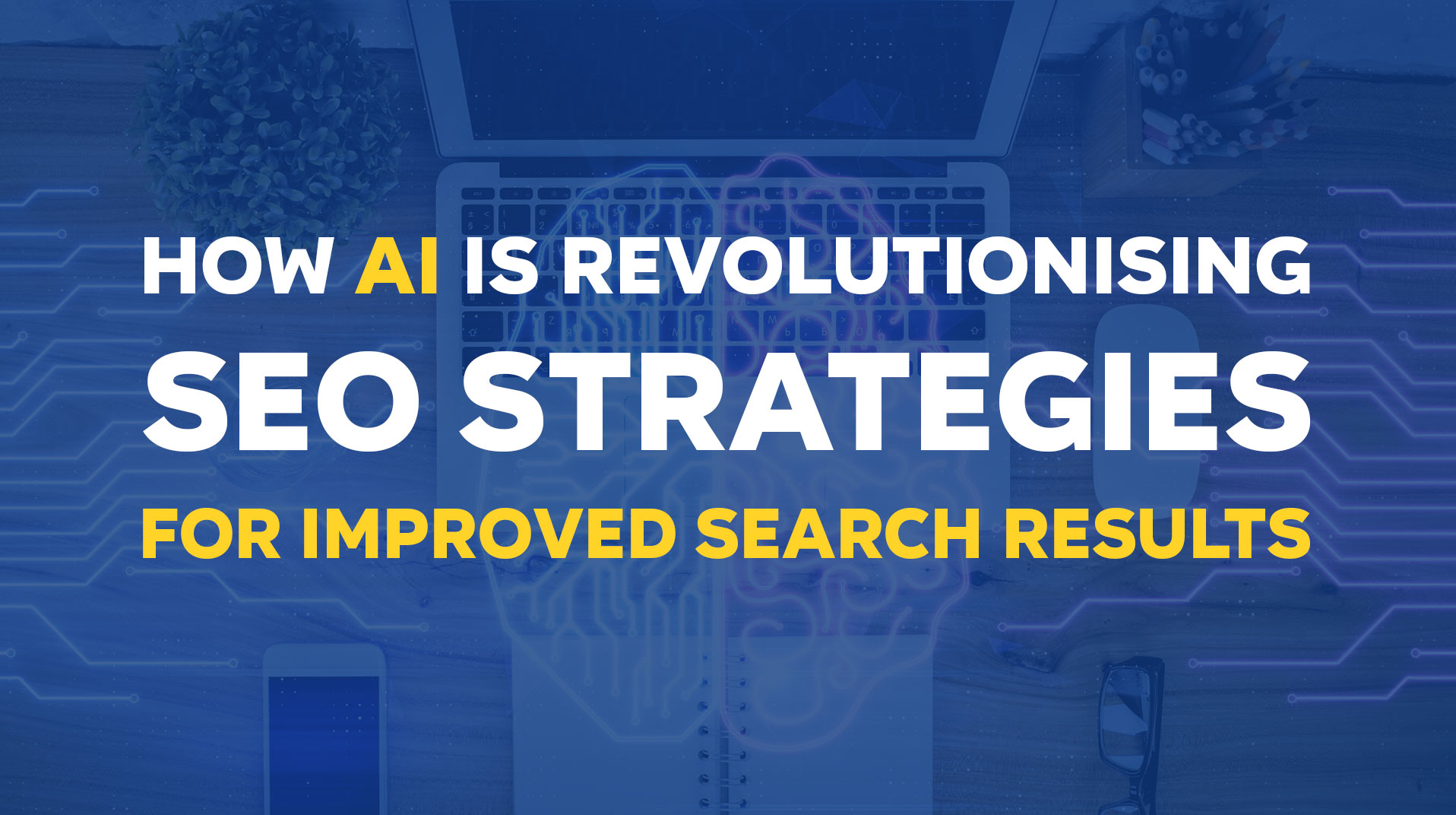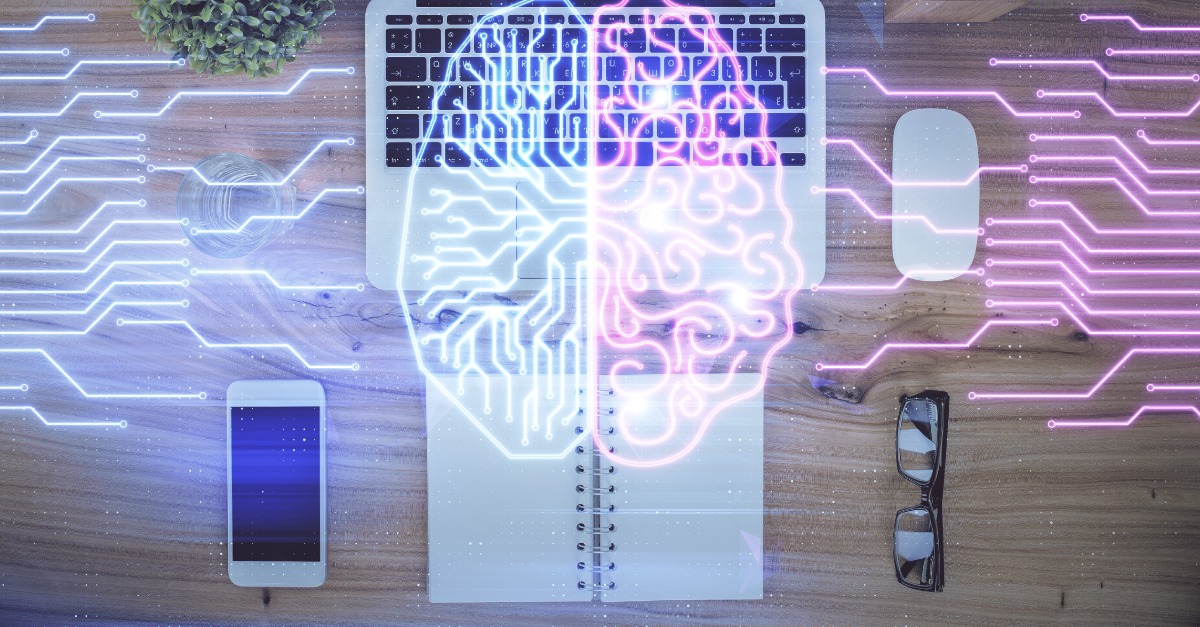
The digital landscape is constantly evolving, and SEO (Search Engine Optimization) is no exception. As search engines become more sophisticated, the strategies needed to rank well also need to adapt. Enter AI (Artificial Intelligence), a game-changer that’s transforming how we approach SEO.
This blog delves into the exciting world of AI in SEO, exploring how it’s revolutionizing strategies for improved search rankings. We’ll explore the following:
- What is AI in SEO?
- How is AI changing SEO?
- The impact of AI on various SEO aspects
- AI SEO strategies for the future
- Will AI replace SEO professionals?
- The human touch in AI-powered SEO
By the end, you’ll have a clear understanding of how AI is shaping the future of SEO and how you can leverage its power to outrank your competition.
Understanding AI in SEO

AI in SEO refers to the use of machine learning algorithms to analyze data, identify patterns, and automate tasks related to search engine optimization. These algorithms can process massive amounts of information about user behavior, search intent, and website content to provide valuable insights that can be used by SEO companies to optimize websites for better search engine ranking.
Here are some key capabilities of AI in SEO:
- Advanced Keyword Research: AI can analyze vast amounts of search data to identify long-tail keywords, local keywords, related searches, and user intent behind specific queries. This allows you to target keywords that are more relevant to your audience and have a higher chance of converting.
- Content Optimization: AI can analyze top-ranking content for specific keywords and identify the key elements that contribute to their success. This information can then be used to optimize your own content for better ranking and user engagement.
- Predictive Analytics: AI can predict future search trends and user behavior, allowing you to create content that is pre-emptive and caters to evolving search patterns.
- Personalized User Experience: AI can personalize the user experience on your website by tailoring content and recommendations based on individual user behavior and preferences. This can lead to higher engagement and conversion rates.
- Automated Tasks: AI can automate repetitive tasks such as link building outreach, competitor analysis, and on-page optimization, freeing up your time to focus on more strategic SEO initiatives.
How AI is Changing SEO

AI is fundamentally changing the way we approach SEO. Here’s a closer look:
- Shift from Keyword-Centric to User-Centric Approach: AI helps us understand search intent more effectively. Instead of simply focusing on keyword stuffing, we can create content that truly addresses the user’s needs and questions.
- Data-Driven Decision Making: RLHFAI provides data-driven insights that can inform every aspect of your SEO strategy. This allows for more precise optimization and a data-backed approach to ranking improvement.
- Focus on Content Quality and Relevance: With AI’s ability to analyze top-performing content, the focus shifts to creating high-quality, informative, and relevant content that resonates with the target audience.
- Constant Evolution and Adaptation: Search engine algorithms are constantly evolving, and AI can help you stay ahead of the curve by identifying these changes and adapting your SEO strategy accordingly.RLH
The Impact of AI on Various SEO Aspects

Let’s see how AI is specifically impacting different aspects of SEO:
- Keyword Research: AI tools, such as AI Chat can analyze search queries, user behavior, and competitor content to identify relevant, high-value keywords. They can also suggest long-tail keywords and related searches that can drive more targeted traffic.
- Video Transcription: AI video transcription tools can convert spoken content in videos to text, making video content searchable and improving SEO rankings.
- Content Creation: AI can help in brainstorming content ideas, analyzing competitor content structure, and optimizing content for specific keywords. Some tools can even generate outlines, summaries, and even first drafts of content, although human expertise is still crucial for quality and creativity.
- On-Page Optimization: AI can analyze your website’s content and structure to identify areas for improvement based on best practices and competitor analysis. This can include optimizing title tags, meta descriptions, headings, and internal linking for better search engine crawlability and ranking.
- Link Building: AI can help identify high-quality websites for potential backlinks and automate outreach efforts. However, building genuine relationships with website owners remains a crucial aspect of link building that AI cannot replace.
- Technical SEO: AI can crawl your website and identify technical SEO issues such as broken links, slow loading times, and mobile-friendliness problems. This allows you to improve the technical performance of your website for better search engine ranking and user experience.
AI SEO Strategies for the Future
As AI continues to evolve, so too will its role in SEO. Here are some future-proof AI SEO strategies to consider:
- Focus on Entity SEO: AI can help you understand and optimize your content for search entities, which are real-world things or concepts. This allows you to create content that is relevant to a broader range of search queries and improves your website’s topical authority.
- Personalization at Scale: AI can personalize the search experience for individual users by tailoring content and search results based on their past behavior, interests, and location. This can significantly improve user engagement and conversion rates.
- Voice Search Optimization: With the rise of voice search, AI can help you optimize your content for natural language queries and conversational search patterns.
- Video SEO: AI can analyze video content and automatically generate captions, tags, and descriptions that are optimized for search engines. This can improve the discoverability of your video content on search engines and platforms like YouTube.
- Real-Time SEO Optimization: AI can monitor your website’s performance in real-time and suggest adjustments to your SEO strategy based on current search trends and user behavior. This allows for a more dynamic and adaptable approach to SEO.
- SEO Optimized Websites: AI will also aid in the creation of SEO-friendly websites by providing automated website audits and recommendations for improving technical aspects such as site speed, mobile responsiveness, and structured data markup. This ensures that your website meets the criteria set by search engines for optimal visibility and ranking.
Will AI Replace SEO Professionals?
A common concern is that AI will eventually replace SEO professionals. However, this is highly unlikely. While AI can automate many tasks and provide valuable insights, it cannot replicate the human touch that is essential for successful SEO.
Here’s why SEO professionals will remain crucial:
- Strategic Thinking and Planning: AI can provide data and insights, but developing a comprehensive SEO strategy that aligns with your overall business goals requires human expertise and strategic thinking.
- Content Creation and Curation: While AI can assist with content creation, human creativity and critical thinking are irreplaceable in crafting high-quality, engaging content that resonates with the target audience.
- Link Building and Relationship Management: Building genuine relationships with website owners and editors is a key aspect of link building, something AI cannot replicate.
- Understanding User Intent: AI can analyse search data, but truly understanding the user’s intent behind a search query requires human understanding of user psychology and search behaviour, which can be enhanced through an AI interview to gather deeper insights.
- Ethical Considerations: AI can be a powerful tool, but it’s important to use it ethically and responsibly in SEO practices. This requires human oversight and judgment.
The Human Touch in AI-Powered SEO
The future of SEO lies in a collaborative approach where AI and human expertise work together. AI can automate tasks, analyze data, and provide insights, while SEO professionals can use this information to develop and implement effective SEO strategies. Here’s how to ensure the human touch remains central to AI-powered SEO:
- Focus on Strategic Goals: Don’t get bogged down in the data. Use AI insights to inform your SEO strategy but keep your broader business goals in mind.
- Maintain Quality Control: AI-generated content can be a starting point, but human editing and refinement are essential for ensuring high quality and relevance.
- Prioritize User Experience: AI can help optimize for search engines, but user experience is paramount. Focus on creating content that is informative, engaging, and valuable to your audience.
- Stay Ahead of the Curve: The SEO landscape is constantly evolving. Stay updated on the latest AI advancements and SEO trends to adapt your approach effectively.
By embracing AI as a powerful tool and leveraging human expertise for strategic decision-making and creative content creation, you can develop a future-proof SEO strategy that drives organic traffic, improves search rankings, and ultimately achieves your business goals.

Speak with our SEO Expert
Got a quick question about growing sales of your business
with local marketing? We can help.
Speak to one of our experts today on 01702 668207 or send us a message.
